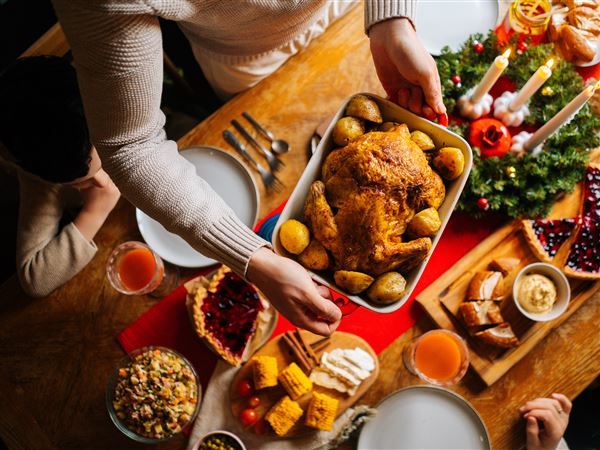A recent study reveals that Thanksgiving dinners may be shortened by approximately 24 minutes when family members hold differing political viewpoints. This unexpected finding highlights how political discussions can impact social gatherings, particularly during significant holidays like Thanksgiving.
Researchers from the University of Massachusetts conducted a survey to analyze the dynamics of family conversations during holiday meals. The study involved over 1,000 participants and aimed to assess the effects of political discourse on the length and quality of family gatherings.
Impact of Political Views on Family Interactions
The findings suggest that when conversations turn to political topics, families with diverse political beliefs tend to experience shorter dinners. Participants reported feeling uncomfortable or anxious discussing contentious issues, leading to a swift conclusion of their meals. In contrast, families with more aligned political views enjoyed longer, more relaxed dinners.
The study’s lead author, Dr. Emily Johnson, emphasizes the significance of these results. “Political discussions can create tension and discomfort, which ultimately affects the overall experience of family gatherings,” she stated. This tension often leads families to steer clear of certain topics altogether, thereby altering the traditional Thanksgiving dialogue.
In addition to the shortened meal times, the study also found a correlation between political diversity and the emotional responses of participants. Many expressed feelings of frustration or sadness when confronted with opposing viewpoints during these gatherings.
Managing Political Conversations at the Table
Given the findings, families may wish to consider strategies for navigating political discussions during Thanksgiving. Experts suggest setting ground rules ahead of time to ensure that everyone feels comfortable participating in conversations.
For instance, some families might designate specific times for political discussions, while others may choose to avoid the subject entirely. “It’s essential for families to prioritize the spirit of Thanksgiving, focusing on gratitude and togetherness rather than division,” Dr. Johnson advises.
The implications of this research extend beyond the dinner table, as it reflects broader societal trends regarding political polarization. As families gather to celebrate, understanding these dynamics could foster more harmonious interactions and a deeper appreciation for differing perspectives.
This study serves as a reminder of the importance of communication, particularly during significant family events. As Thanksgiving approaches, families may find it beneficial to reflect on their conversations and the values they wish to promote during the holiday season. Balancing political dialogue with respect and understanding can help create a more enjoyable atmosphere for all.






































































